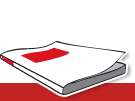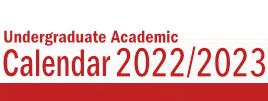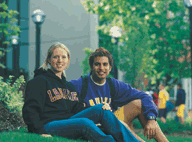Academic and Professional Conduct
The Faculty of Education's policies related to student conduct are governed by the general policies of Wilfrid Laurier University and by those of the Ontario College of Teachers. Students are bound by the Student Code of Conduct and Discipline found in the Undergraduate Academic Calendar/University Undergraduate Regulations/Academic Privileges and Responsibilities. Further information regarding academic integrity is found at http://www.wlu.ca/academicintegrity. Both academic and non-academic discipline and conduct are governed through the Student Code of Conduct and Discipline. This policy sets out penalties for either form of misconduct and procedures for Investigation and Discipline in cases of allegations of such misconduct.
The professional and ethical conduct expectations of students in the Faculty of Education are also described in legislation and policy of the Ontario College of Teachers (OCT). According to the Teaching Profession Act (R.S.O. 1990 Chapter T.2 Section 4 (2)), "Every student in a teachers' college or in a college of education in Ontario is an associate member of the federation." As such, it is expected that students in the WLU Bachelor of Education program conform to the responsibilities and duties of a teaching professional. These
responsibilities and duties are outlined in the Ethical Standards for the Teaching Profession and Standards of Practice for the Teaching Profession (see http://www.oct.ca/standards/?lang=en‐CA).
9.1 The Ethical Standards for the Teaching Profession are as follows:
Care
The ethical standard of Care includes compassion,
acceptance, interest and insight for developing students' potential.
Members express their commitment to students' well‐being and learning
through positive influence, professional judgment and empathy in
practice.
Trust
The ethical standard of Trust embodies fairness,
openness and honesty. Members' professional relationships with students,
colleagues, parents, guardians and the public are based on trust.
Respect
Intrinsic to the ethical standard of Respect are
trust and fair‐mindedness. Members honour human dignity, emotional
wellness and cognitive development. In their professional practice, they
model respect for spiritual and cultural values, social justice,
confidentiality, freedom, democracy and the environment.
Integrity
Honesty, reliability and moral action are
embodied in the ethical standard of Integrity. Continual reflection
assists members in exercising integrity in their professional
commitments and responsibilities.
9.2 The Professional Standards for the Teaching Profession are as follows:
Commitment to Students and Student Learning
Members are
dedicated in their care and commitment to students. They treat students
equitably and with respect and are sensitive to factors that influence
individual student learning. Members facilitate the development of
students as contributing citizens of Canadian society.
Professional Knowledge
Members strive to be current in
their professional knowledge and recognize its relationship to practice.
They understand and reflect on student development, learning theory,
pedagogy, curriculum, ethics, educational research and related policies
and legislation to inform professional judgment in practice.
Leadership in Learning Communities
Members promote and
participate in the creation of collaborative, safe and supportive
learning communities. They recognize their shared responsibilities and
their leadership roles in order to facilitate student success. Members
maintain and uphold the principles of the ethical standards in these
learning communities.
Professional Practice
Members apply professional
knowledge and experience to promote student learning. They use
appropriate pedagogy, assessment and evaluation, resources and
technology in planning for and responding to the needs of individual
students and learning communities. Members refine their professional
practice through ongoing inquiry, dialogue and reflection. Ongoing
Professional Learning Members recognize that a commitment to ongoing
professional learning is integral to effective practice and to student
learning. Professional practice and self‐directed learning are informed
by experience, research, collaboration and knowledge.






